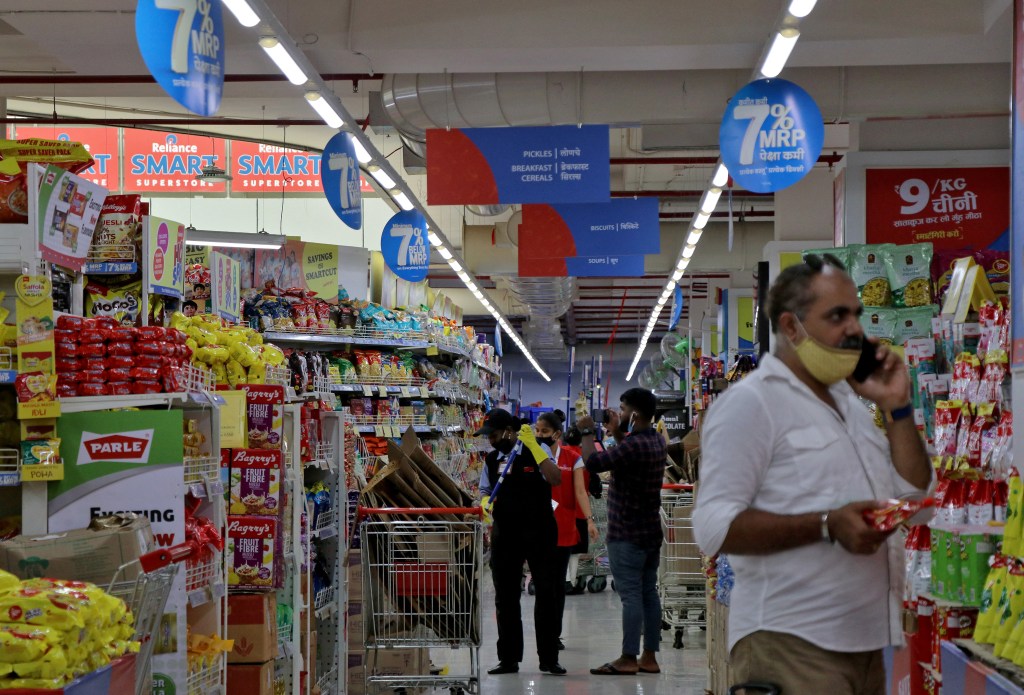Reliance Retail’s (RR) 2,850-crore acquisition of Metro Cash & Carry India last December held out much promise. A year on, however, market realities appear to have slowed the integration process. The acquisition gave RR access to 31 cash-and-carry outlets in 21 cities and a database of three-million-strong merchant customers and the agreement with German retailer Metro AG last year, allows for the Metro brand name to be used during a “transition period” or about two years.
Persons in the know say RR has been evaluating synergies between Metro Cash & Carry and JioMart B2B; it wants to reduce overlapping roles and work towards a common sourcing system for both online and offline as well as a new brand name. Industry experts believe RR is looking at an omnichannel presence in the domestic organised wholesale market by combining the on-ground strengths of Metro and the online platform that JioMart B2B provides.A new store has been launched in Patiala recently to strengthen the network. And the plan is to launch at least 35-40 new stores to reach out to more kiranas, notably in tier II and III markets, where the concentration of mom-and-pop stores is higher, according to experts. Of the 12-million kirana stores tracked by market researcher NielsenIQ, more than half or almost 8-9 million stores are in semi-urban and rural areas.
A mail sent to RR elicited no response till the time of going to press. However, during the Q2 earnings call in October, Reliance Retail’s CFO Dinesh Taluja said that the integration between Metro Cash & Carry and the company’s B2B grocery division (JioMart) was “under progress”. “This will help us provide an omnichannel experience to merchants and further strengthen our value proposition for the segment,” Taluja said.
Challenges aplenty
To understand why the integration of Metro India into RR has moved slowly, it is important to put into perspective the retail landscape. For one, the organised wholesale business or B2B space in India is still small, constituting just around 1-2% of the total organised retail market which is estimated at $130 billion (or 13% of the $1,000-billion total retail market).
Second, traditional trade or kiranas, which constitute 80% ($800 billion) of India’s total retail market, are not easy to service, given that the market is huge and fragmented. And third, there is an existing distribution system comprising stockists, authorised distributors and wholesalers, which caters to kiranas’ needs at their doorstep and has strong relationships with them.
This system has seen fast-moving consumer goods (FMCG) companies depend on the traditional general trade channel for 80% of their sales, with modern trade constituting 13% and online at about 7% in terms of share. It has also meant that FMCG companies have been unwilling to upend this traditional distribution network, choosing instead to ramp up their own direct reach to retailers. Of late, companies have also been vocal about wanting to revitalise general trade as the latter grapples with low sales due to a rural slowdown.
“The FMCG distribution system in India is a well-oiled machinery that has been created over decades. I am not quite sure whether an alternate system of cash and carry or of digital firms trying to onboard smaller retailers onto their platforms can work. But some players have been trying to do so in recent years with limited success,” says Dhairyashil Patil, president of the All India Consumer Products Distributors Federation (AIDCF), an apex body of traditional traders in the country.
Patil’s reference here is to Reliance JioMart, Udaan and Flipkart Wholesale. In the last one year, most of these players have had to trim their workforce, reduce cash burn and focus on profitability, say industry sources, as they right-size operations of a business that has wafer-thin margins.
Patil says that onboarding of kirana partners at JioMart B2B has stopped within his body of retailers since August and visits by JioMart B2B field staff to kirana stores have also reduced.
C H Krishna, president of the All India Distributors Association (FAIDA), a rival FMCG distributor body, points to the challenges that retailers face getting to cash-and-carry outlets. “These outlets are typically located outside the city. How do you expect small retailers to pick up goods from these places when they have no transportation of their own?” he asks.
While cash-and-carry evolved well in markets such as Europe, where small retailers have had no problem taking their pick-up trucks or vans to organised wholesale outlets in the vicinity, India’s mom-and-pop stores have depended on neighbourhood wholesale shops or their local distributors for stock replenishment. Typically, these wholesale shops and distributors extend good terms of credit (15-20 days) and have a strong working relationship with retailers, delivering products quickly.
India’s traditional distribution model
While the grocery business under the legacy distribution systems in India enjoys margins of about 9-10%, online platforms such as JioMart B2B and Udaan have had to operate on even thinner margins of about 4-5% to attract kiranas. The kiranas under JioMart B2B’s partner programme, for instance, have been offered FMCG products at lower prices than traditional distributors (by around 3-4%), attractive terms of credit (extending up to a month), free delivery and branding and digitisation initiatives that helps these stores to stand out in the vicinity, industry sources said.
While JioMart had onboarded over 2 million kirana partners last year and was looking to take this up to 10 million outlets in 5 years, the pace of additions has slowed in the last few months, sources in the know say. JioMart B2B has also reduced favourable terms of credit and free delivery is provided only if the retailer’s order value is least around `1,500-2,000 (per transaction).
But is RR giving up? It is expected to use Metro to drive its B2B journey tapping into its 3 million-strong registered customer base of small merchants and businesses. A million of these customers are frequent buyers, which Reliance is keen to work with.

